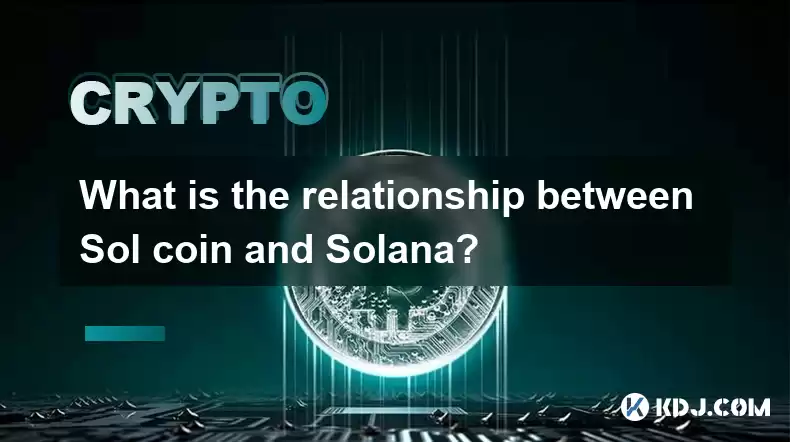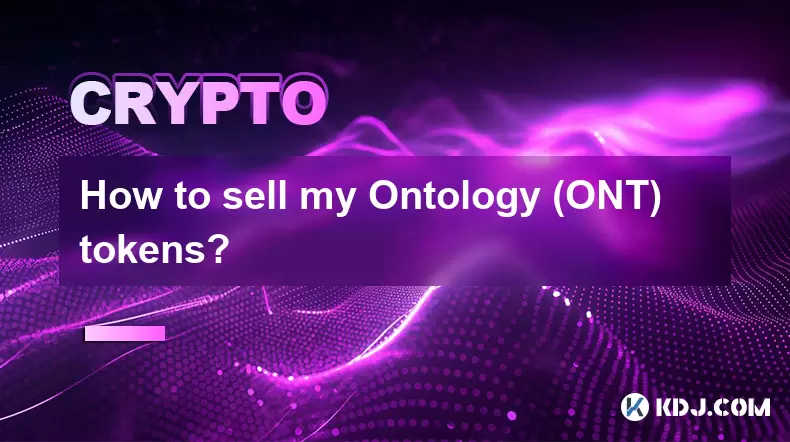-
 Bitcoin
Bitcoin $116400
-0.36% -
 Ethereum
Ethereum $4033
3.40% -
 XRP
XRP $3.302
-1.26% -
 Tether USDt
Tether USDt $1.000
-0.02% -
 BNB
BNB $796.1
1.67% -
 Solana
Solana $177.8
1.89% -
 USDC
USDC $0.9999
0.00% -
 Dogecoin
Dogecoin $0.2314
4.09% -
 TRON
TRON $0.3381
0.14% -
 Cardano
Cardano $0.7989
1.22% -
 Stellar
Stellar $0.4496
-1.84% -
 Chainlink
Chainlink $20.42
9.42% -
 Hyperliquid
Hyperliquid $41.17
0.88% -
 Sui
Sui $3.914
3.77% -
 Bitcoin Cash
Bitcoin Cash $584.7
1.52% -
 Hedera
Hedera $0.2632
-0.54% -
 Avalanche
Avalanche $24.09
3.40% -
 Ethena USDe
Ethena USDe $1.001
-0.02% -
 Litecoin
Litecoin $123.2
1.33% -
 Toncoin
Toncoin $3.318
-0.04% -
 UNUS SED LEO
UNUS SED LEO $8.984
-0.05% -
 Shiba Inu
Shiba Inu $0.00001323
2.85% -
 Uniswap
Uniswap $10.90
4.41% -
 Polkadot
Polkadot $3.999
3.34% -
 Dai
Dai $1.000
0.01% -
 Cronos
Cronos $0.1630
9.64% -
 Bitget Token
Bitget Token $4.484
0.82% -
 Monero
Monero $272.4
2.44% -
 Pepe
Pepe $0.00001173
6.03% -
 Aave
Aave $290.8
2.88%
What is the relationship between Sol coin and Solana?
SOL, Solana's native cryptocurrency, is vital for transaction fees, staking, and governance, directly impacting its value and the blockchain's success; understanding Solana is key to understanding SOL.
Mar 03, 2025 at 03:43 pm

Key Points:
- Solana (SOL) is the native cryptocurrency of the Solana blockchain. They are intrinsically linked; one cannot exist without the other.
- SOL is used for transaction fees, staking, and governance within the Solana ecosystem.
- The value of SOL is directly tied to the success and adoption of the Solana blockchain.
- Understanding the Solana blockchain is crucial to understanding the value and function of SOL.
- While SOL is the primary token, other tokens operate within the Solana ecosystem.
What is the relationship between Sol coin and Solana?
The relationship between Sol coin (SOL) and Solana is fundamental and inseparable. Solana is a high-performance blockchain known for its speed and scalability. SOL, its native cryptocurrency, fuels the entire Solana ecosystem. Think of it like this: Solana is the engine, and SOL is the fuel that keeps it running. Without SOL, the Solana network would be unable to function.
SOL serves several crucial roles within the Solana ecosystem. First and foremost, it's used to pay transaction fees. Every transaction conducted on the Solana blockchain requires a small amount of SOL to incentivize validators and maintain network security. This ensures the smooth and efficient operation of the network.
Beyond transaction fees, SOL is also essential for staking. Users can stake their SOL to participate in the network's consensus mechanism, securing the blockchain and earning rewards in the process. Staking is vital for maintaining the integrity and decentralization of Solana. This process ensures the network remains robust and resistant to attacks.
Furthermore, SOL plays a key role in governance. SOL holders can participate in on-chain governance proposals, influencing the future development and direction of the Solana ecosystem. This participatory aspect allows the community to shape the platform's evolution. It fosters a sense of ownership and allows for community-driven improvements.
The price of SOL is directly correlated with the performance and adoption of the Solana blockchain. Increased network activity, the launch of successful decentralized applications (dApps), and positive media coverage all contribute to a rise in SOL's value. Conversely, negative news or technical issues affecting the Solana blockchain can negatively impact SOL's price. This interconnectedness highlights the inherent risk and reward associated with investing in cryptocurrencies like SOL.
While SOL is the primary token on the Solana network, it's important to remember that other tokens and projects exist within the Solana ecosystem. These tokens often represent specific dApps or projects built on the Solana blockchain. These projects leverage the speed and scalability of Solana to offer unique services and functionalities. They can be used for various purposes within their respective ecosystems.
The Role of SOL in Decentralized Finance (DeFi) on Solana
The Solana blockchain has seen significant growth in the DeFi sector. SOL plays a pivotal role in this growth. Many DeFi protocols built on Solana utilize SOL as a collateral asset or a means of facilitating transactions. Lending and borrowing platforms, decentralized exchanges (DEXs), and yield farming protocols all frequently interact with SOL. This makes SOL a critical component of the thriving DeFi ecosystem on Solana.
Security and Scalability Aspects related to SOL and Solana
The security and scalability of the Solana blockchain are closely tied to the functionality of SOL. The consensus mechanism, which relies heavily on SOL staking, ensures the network's security. The efficient transaction processing facilitated by SOL contributes directly to Solana's scalability, enabling it to handle a high volume of transactions per second. This high transaction throughput is a key differentiator for Solana compared to other blockchains.
Understanding the Solana Ecosystem beyond SOL
The Solana ecosystem extends far beyond just the SOL token. Numerous projects and dApps are built on the Solana blockchain, each with its own token or utility. These projects contribute to the overall value and utility of the Solana ecosystem, indirectly impacting the value of SOL. Understanding the wider ecosystem is crucial for a comprehensive understanding of SOL's potential. The interconnectedness of these various projects is a strength of the Solana ecosystem.
Common Questions:
Q: Is SOL the only cryptocurrency on the Solana blockchain?
A: No, while SOL is the native token and plays a crucial role, many other tokens and projects operate within the Solana ecosystem, each serving different purposes.
Q: Can I use SOL for anything other than transaction fees and staking?
A: Yes, SOL is also used for governance within the Solana ecosystem, allowing holders to participate in shaping its future development. It is also increasingly used as collateral in DeFi protocols built on the Solana network.
Q: How does the price of SOL relate to the success of the Solana blockchain?
A: The price of SOL is highly correlated with the success and adoption of the Solana blockchain. Increased network activity, new dApps, and positive media coverage typically lead to an increase in SOL's value. Conversely, negative news or technical issues can decrease its value.
Q: Is investing in SOL risky?
A: Like all cryptocurrencies, investing in SOL carries inherent risk. The cryptocurrency market is volatile, and the value of SOL can fluctuate significantly. Thorough research and understanding of the risks are crucial before investing.
Q: How can I acquire SOL?
A: SOL can be purchased on various cryptocurrency exchanges. It's essential to choose a reputable exchange to ensure security and avoid scams. Always practice safe cryptocurrency handling practices.
Disclaimer:info@kdj.com
The information provided is not trading advice. kdj.com does not assume any responsibility for any investments made based on the information provided in this article. Cryptocurrencies are highly volatile and it is highly recommended that you invest with caution after thorough research!
If you believe that the content used on this website infringes your copyright, please contact us immediately (info@kdj.com) and we will delete it promptly.
- Shiba Inu (SHIB) in the Crypto Landscape: Community, Trends, and Future Outlook
- 2025-08-09 20:30:12
- Lasers in Modern Warfare: Iron Beam and the Future of Defense
- 2025-08-09 20:30:12
- Maxi Doge Presale: The Meme Coin That's Pumping Iron and Prices!
- 2025-08-09 19:10:11
- Rare Coin Warning: Don't Get Fooled by That 1p Coin!
- 2025-08-09 18:50:12
- Cardano, Unilabs, and Tron Price: Decoding the Latest Crypto Buzz
- 2025-08-09 18:30:12
- Aerodrome Finance: Price Targets and the Bullish Channel - What's Next?
- 2025-08-09 18:50:12
Related knowledge

Where can I buy UMA (UMA)?
Aug 07,2025 at 06:42pm
Understanding UMA and Its Role in Decentralized FinanceUMA (Universal Market Access) is an Ethereum-based decentralized finance (DeFi) protocol design...

How to buy Storj (STORJ) tokens?
Aug 09,2025 at 07:28am
Understanding Storj (STORJ) and Its Role in Decentralized StorageStorj is a decentralized cloud storage platform that leverages blockchain technology ...

What is the best app to buy Nano (NANO)?
Aug 09,2025 at 03:35am
Understanding Nano (NANO) and Its Unique FeaturesNano is a feeless, instant cryptocurrency designed for fast peer-to-peer transactions. Unlike many ot...

Where can I purchase Siacoin (SC)?
Aug 08,2025 at 11:14am
Understanding Siacoin (SC) and Its Role in the Sia NetworkSiacoin (SC) is the native cryptocurrency of the Sia decentralized cloud storage platform, a...

How to sell my Ontology (ONT) tokens?
Aug 09,2025 at 06:08pm
Understanding Ontology (ONT) and Its Trading EcosystemBefore selling your Ontology (ONT) tokens, it's essential to understand the nature of the crypto...

Where can I buy OMG Network (OMG)?
Aug 08,2025 at 12:57pm
Understanding OMG Network (OMG) and Its PurposeThe OMG Network, originally known as OmiseGO, is a layer-2 scaling solution built on the Ethereum block...

Where can I buy UMA (UMA)?
Aug 07,2025 at 06:42pm
Understanding UMA and Its Role in Decentralized FinanceUMA (Universal Market Access) is an Ethereum-based decentralized finance (DeFi) protocol design...

How to buy Storj (STORJ) tokens?
Aug 09,2025 at 07:28am
Understanding Storj (STORJ) and Its Role in Decentralized StorageStorj is a decentralized cloud storage platform that leverages blockchain technology ...

What is the best app to buy Nano (NANO)?
Aug 09,2025 at 03:35am
Understanding Nano (NANO) and Its Unique FeaturesNano is a feeless, instant cryptocurrency designed for fast peer-to-peer transactions. Unlike many ot...

Where can I purchase Siacoin (SC)?
Aug 08,2025 at 11:14am
Understanding Siacoin (SC) and Its Role in the Sia NetworkSiacoin (SC) is the native cryptocurrency of the Sia decentralized cloud storage platform, a...

How to sell my Ontology (ONT) tokens?
Aug 09,2025 at 06:08pm
Understanding Ontology (ONT) and Its Trading EcosystemBefore selling your Ontology (ONT) tokens, it's essential to understand the nature of the crypto...

Where can I buy OMG Network (OMG)?
Aug 08,2025 at 12:57pm
Understanding OMG Network (OMG) and Its PurposeThe OMG Network, originally known as OmiseGO, is a layer-2 scaling solution built on the Ethereum block...
See all articles

























































































